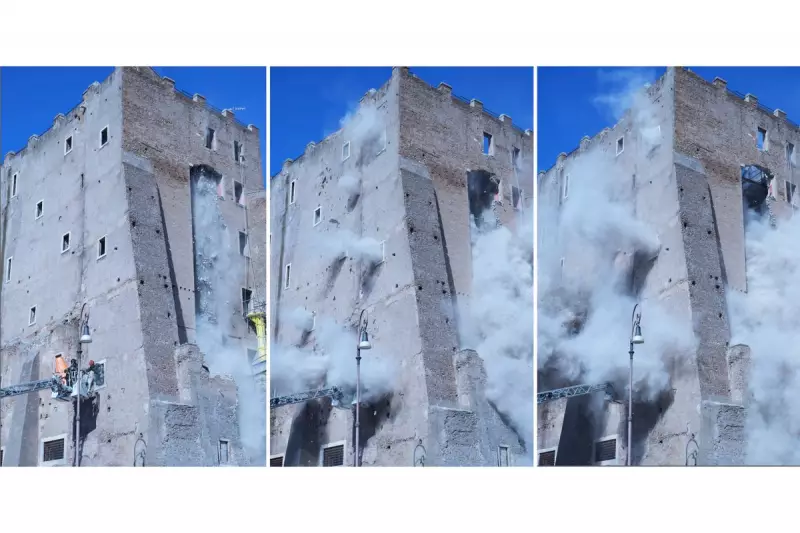
Italian authorities have launched a major manhunt after shocking footage emerged showing a tourist deliberately carving names into the ancient walls of Rome's iconic Colosseum. The incident has sparked international outrage and renewed calls for tougher penalties against those who damage cultural heritage sites.
The vandalism occurred in broad daylight, with witnesses capturing the act on video. The footage clearly shows an individual using what appears to be a metal object to engrave names into the nearly 2,000-year-old stonework of the amphitheatre.
Historic Monument Defaced
The Colosseum, one of the world's most recognisable ancient structures, has stood since 80 AD and survived earthquakes, stone robbers, and centuries of wear. Yet this latest act of vandalism has highlighted the ongoing threat posed by irresponsible tourists to Italy's cultural treasures.
Cultural Minister Gennaro Sangiuliano expressed his fury, stating: "This is a very serious, uncivilised, and absurd act that has damaged one of the most famous places in the world." He confirmed that authorities are working to identify the perpetrator through video analysis and witness statements.
Growing Problem of Cultural Vandalism
This incident is not isolated. In recent years, several high-profile cases have seen tourists facing serious consequences for damaging Italian cultural sites:
- A Russian tourist was fined €20,000 in 2015 for carving a letter into the Colosseum
- An American woman received a suspended sentence in 2020 for defacing a Renaissance palace
- Multiple visitors have been banned from sites for stealing ancient fragments
"We must raise awareness that our heritage is unique and must be protected," a spokesperson for the Colosseum archaeological park told reporters.
Legal Consequences and International Response
Under Italian law, damaging cultural heritage can result in fines up to €15,000 and prison sentences. The government has indicated it will pursue the maximum penalty in this case to set an example.
Tourism operators have expressed concern about the impact such incidents have on Italy's reputation as a custodian of world heritage. Many are calling for increased security and educational campaigns targeting visitors about proper behaviour at historical sites.
The investigation continues as authorities work to identify the individual responsible for what many are calling an attack on world history itself.





